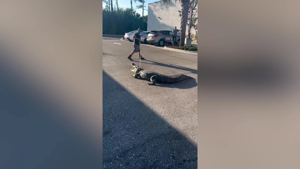Oklahoma lawmakers have turned their attention to the state’s alarming literacy rates after recent data revealed that only 23 percent of fourth-grade students achieved proficiency or advanced standings in reading according to the National Assessment of Educational Progress (NAEP) tests conducted in 2024. This statistic places Oklahoma among the lowest in the nation for reading outcomes, prompting a call for action to address the ongoing challenges.
Revisiting Effective Policies
During a recent legislative session, state representatives discussed strategies to improve reading proficiency in Oklahoma. Rob Hall, a Republican representative from Tulsa, emphasized the serious implications of widespread illiteracy, stating that “widespread illiteracy is a policy choice.” He referenced the success of other states, particularly Mississippi, which implemented similar educational reforms and climbed from the bottom ranks to the top ten in reading outcomes.
Lawmakers are considering the re-adoption of policies that were effective in Oklahoma between 2011 and 2014. These include a robust third-grade reading law that mandates early intervention for struggling readers, with the most challenged students required to repeat the third grade. When these policies were in place, Oklahoma’s NAEP fourth-grade reading scores surged to 222 in 2015, surpassing the national average.
However, after significant alterations to the retention law, Oklahoma’s reading scores declined sharply. By 2024, the state’s average NAEP reading score fell to 207, indicating that students are now approximately 1.5 years behind their peers from 2014.
The Role of Literacy Coaches and Science-Based Instruction
Experts, including literacy consultant Mary Dahlgren, have urged lawmakers to allocate funding for reading coaches to assist teachers in effectively implementing reading instruction. Dahlgren advocates for a curriculum based on the science of reading, which includes proven strategies such as phonetic instruction.
While some critics argue that retention may harm children more than promoting struggling readers, evidence from Mississippi suggests otherwise. During the 2014-2015 school year, 8.1 percent of third-grade students in Mississippi failed their state test and were required to repeat the grade. Research indicated that by sixth grade, these retained students outperformed their peers who were promoted despite barely passing their tests.
House Speaker Kyle Hilbert of Bristow expressed his commitment to improving literacy in Oklahoma, linking it to the state’s broader economic health and labor market needs. “If our kids can’t read then they’re not going to be doctors. They’re not going to be attorneys. They’re not going to be physicians. They’re not going to be engineers,” Hilbert noted, emphasizing the long-term societal benefits of strong literacy skills.
Improving literacy rates is not just about education; it is about ensuring a brighter future for Oklahoma’s children and, by extension, for the state as a whole. Jonathan Small, president of the Oklahoma Council of Public Affairs, underlines the importance of addressing this crisis to secure the state’s economic vitality.






































































